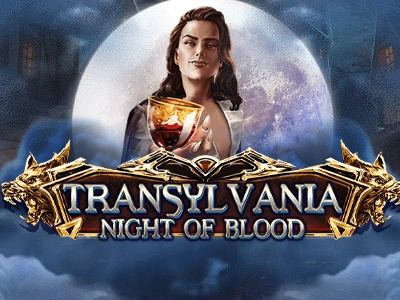
Transylvania Night of Blood Slot
As we delve deeper into the world of online gaming, it’s crucial to understand how slot games, particularly innovative titles like the Transylvania Night of Blood Slot, have evolved over time and their significance within our culture. This section explores the history of slot games, from their humble beginnings to their current status as cultural phenomena, while examining how they reflect societal shifts and technological advancements.
The Historical Context of Transylvania Night of Blood Slot
The origins of slot machines can be traced back to the late 19th century, with the introduction of the Liberty Bell machine created by Charles Fey in 1895 WW88.
This mechanical marvel featured three spinning reels with symbols like horseshoes, diamonds, and bells—hence the name “Liberty Bell.”
The game’s simplicity quickly captured players’ imaginations, leading to a surge in popularity across saloons and amusement parks. Over the decades, the mechanics of these games evolved, transitioning from mechanical reels to electronic versions.
By the 1980s, video slots emerged, introducing new gameplay features such as multiple paylines and interactive bonuses. As technology continued to advance, so did the design and complexity of slot games, paving the way for the modern online casino experience, which includes visually stunning titles like Transylvania Night of Blood Slot.
The Rise of Online Slots
With the advent of the internet in the late 1990s, the gaming industry experienced a seismic shift.
Online casinos began to emerge, providing players with the convenience of playing their favorite slots from the comfort of their homes.
The ability to access a diverse array of themes and gameplay styles attracted a wider audience, transcending geographical boundaries. Now, players could explore everything from classic fruit machines to elaborate narrative-driven games like Transylvania Night of Blood Slot.
Furthermore, the introduction of mobile gaming has made slots more accessible than ever. Players can now enjoy their favorite games on smartphones and tablets, enabling gaming on-the-go.
The integration of social elements, including leaderboards and multiplayer options, has also added a layer of community and competition, enhancing the overall gaming experience.
Cultural Significance of Slot Games
Slot games are more than just a form of entertainment; they reflect our cultural values, interests, and even fears.
Themes ranging from mythology, horror, adventure, and fantasy resonate with players on a personal level.
For instance, the gothic elements present in Transylvania Night of Blood Slot tap into the timeless appeal of vampire lore and horror narratives that have fascinated humanity for centuries.
These themes serve as a conduit for storytelling, transporting players into immersive worlds where they can engage their imaginations and embrace their desires for escapism.
Moreover, slot games have become an integral part of social interactions. Playing together or discussing strategies has forged connections among friends and family, creating shared experiences that extend beyond mere gambling.
The Future of Slot Gaming
As technology continues to advance, the future of slot gaming looks promising. Innovations such as virtual reality (VR) and augmented reality (AR) hold the potential to further enhance player immersion and interaction.
Imagine stepping into a virtual Transylvanian castle, navigating through eerie hallways while encountering characters along the way. Such experiences could revolutionize how players engage with slot games, making them not just passive observers but active participants in their narratives.
Additionally, the rise of blockchain technology and cryptocurrencies may redefine the industry by offering secure, anonymous transactions, attracting a new demographic of tech-savvy players.
Conclusion
The evolution of slot games reflects broader changes in technology, culture, and society. From simple mechanical devices to intricate online experiences, games like Transylvania Night of Blood Slot encapsulate this progression, merging artistic innovation with engaging gameplay.
These games not only provide entertainment but also foster connections among players and offer avenues for storytelling and exploration. As we look forward to the future of gaming, it’s clear that slots will continue to play a vital role in shaping our digital landscape and cultural fabric.

